It has been a real joy to write these various blogs over the past couple of years, and strangely comforting for me to re-read them from time to time. They record only some of the big stories of my life, there are many more to put down on paper and I will.
But surprisingly on re-reading are the many (possibly subconscious) tales about and references to my father. He features so widely, I hadn’t realised. And here we go again with yet another missive – “Things my Daddy told me”.

We weren’t that overtly close. He was consistently and entirely undemonstrative to me up to and including the day he died. He came from a generation that suffered and served in silence, born of an ice-cold mother and invalid father (gassed in the First World War and whom I never met). Read more about him here. He was a withdrawn individual, cussed and often cantankerous, programmed not to show his emotions but to hide them. But there was never any doubt of his love for me, everyone knew he adored his son.
It’s been a while now, nearly twenty years, since he died but I remember him so often in so many ways because of his gentle humour, the wisdom he spoke and the lessons he taught me. He was of few words, but they were always memorable and come back to me most days in one form or another. Much he said seemed irrelevant when I was young, of course I had no need of his or anyone else’s advice, I knew it all. But over the years so many of his sayings have proved unnervingly true and saved me from disaster on more than one occasion. I’ve passed these on to my own children – it’s up to them whether or not in their turn they choose to heed them but so far it’s looking good.
So, in no particular order, let me share some of them with you. And please feel free to write back with any parental lessons you particularly value and cherish.
1. You should never be too busy to ask for help Dad often used to chuckle when someone was getting into a flap about something. “Look, he’s too busy to ask for help.” His truism speaks for itself – how often do we find ourselves in a spin which would be relieved if we just paused and asked for help? Perhaps through pride, or panic, or ignorance we press on regardless when there are others around who can assist, willingly.
There are very few situations in life that require immediate action to save a disaster. Even during a crisis on the flight deck of an aeroplane, when the bells are ringing and the stick is shaking, good crews pause to take a breath and refer to their checklists, each other and the ground.
2. Cook your porridge slowly Dad was a good if basic cook, but Mother was old school – she said men shouldn’t be allowed near either the kitchen or the delivery suite. He did cook Christmas lunch, though, every year, it was his big moment. (Except for the year he bought Mum a new Belling cooker for her main and only Christmas present (as I said, old school) and he set the automatic timer thingy (a wonder in its day) wrong and he woke at 5am to find a fully cooked turkey. He got us all out of bed. That was a breakfast to remember.)
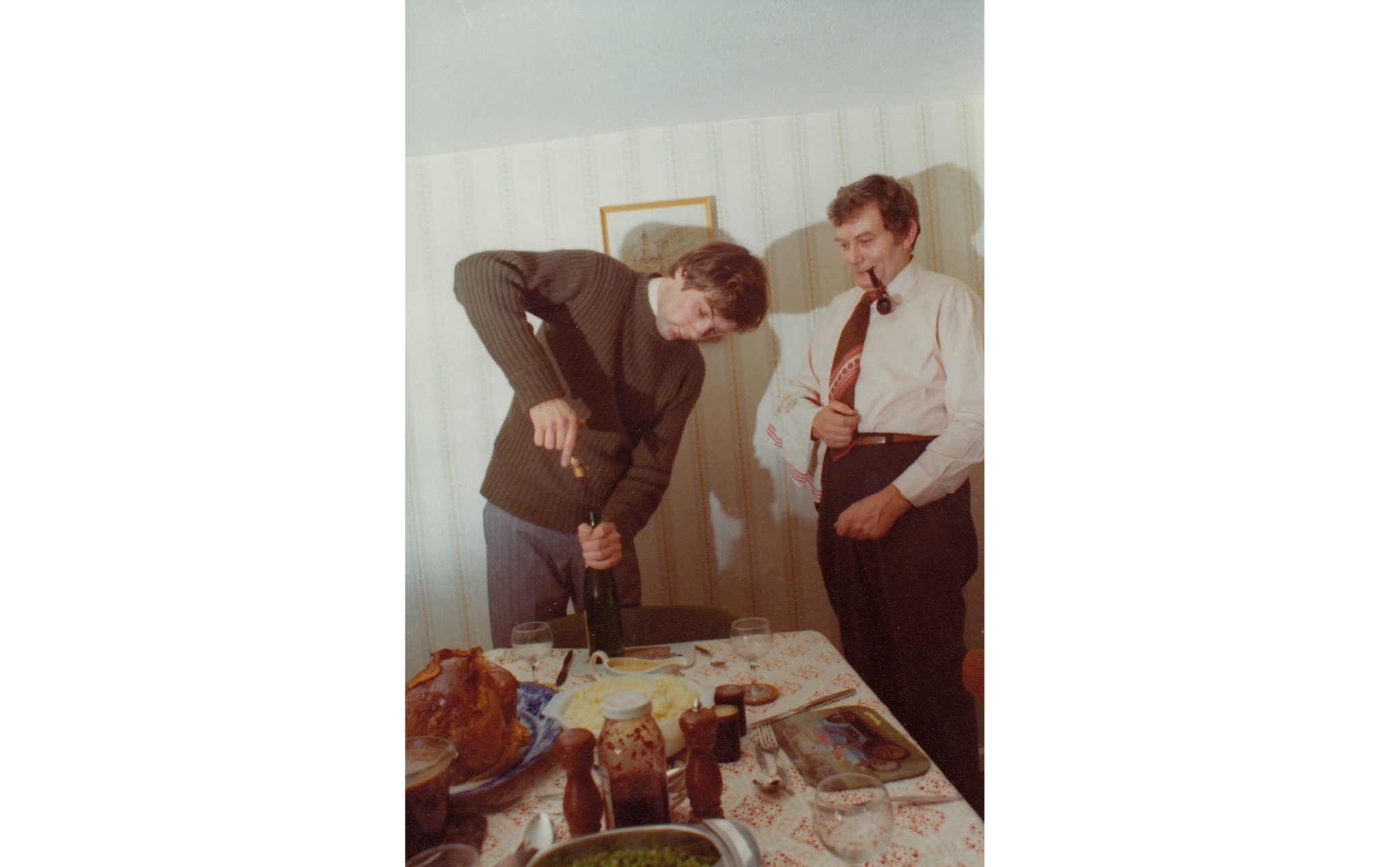
Christmas lunch 1973
He excelled at one thing, though – porridge. To this day I can smell and taste it, my mouth is actually watering as I write these words. He would cook it occasionally at home, but it was our staple daily breakfast on camping holidays. He said he learned this skill from his days in the Navy, and the cramped galley of his Landing Craft (Tank) with its single gas ring and simple metal saucepans. The only way to make it was slowly, he said, under the lowest possible heat, with constant, gentle stirring. Never leave it alone. It takes longer, he said, and it’s a little bit more trouble but it’s worth it. Try to rush things, and of course the porridge will spoil by burning or going lumpy.
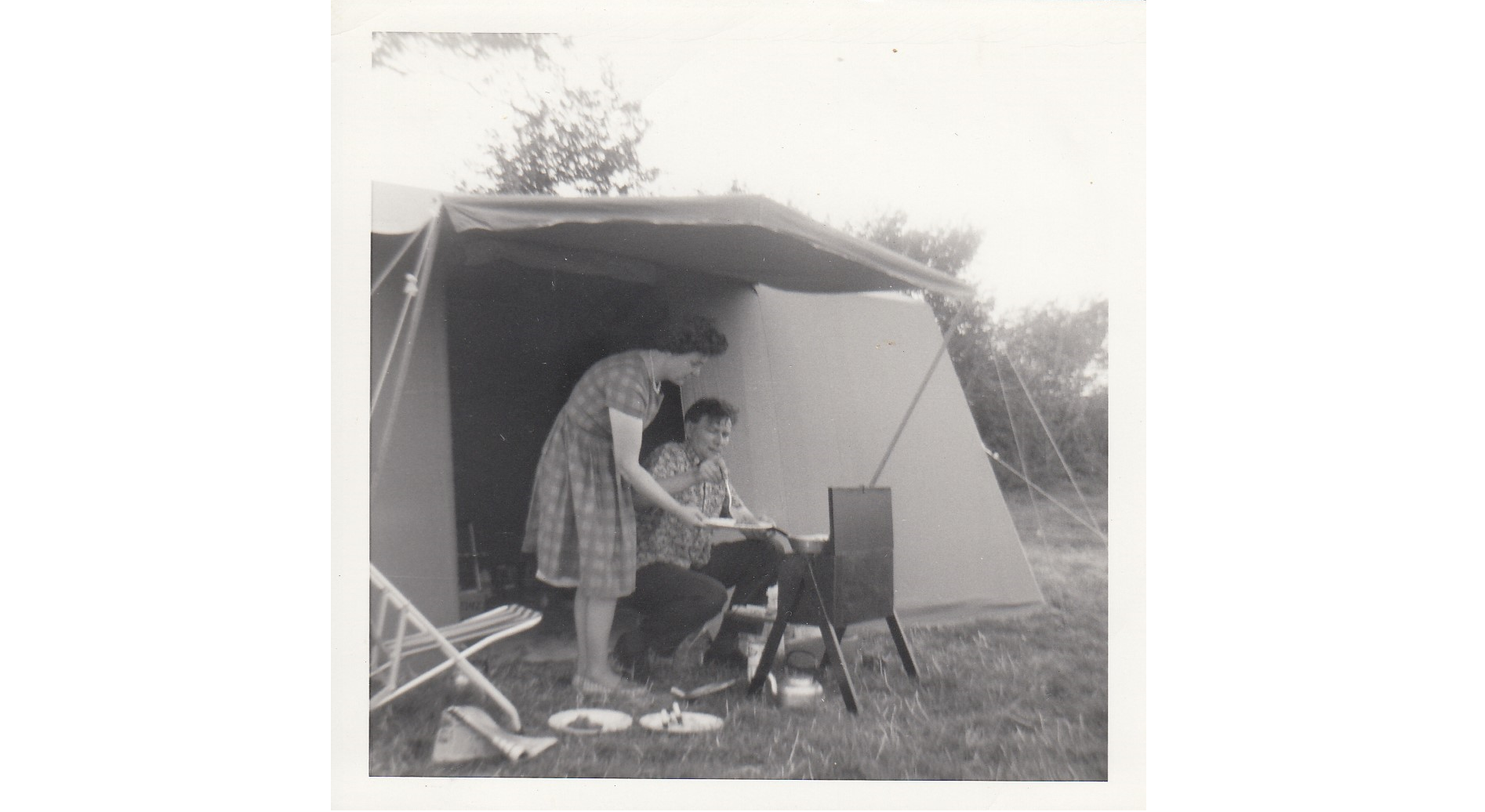
I can taste that porridge still, 60 years later
As an impetuous young man, I often rushed into things. Occasionally I still do. Now, as then, I still hear him saying softly in my ear “cook your porridge slowly, son…”.
3. Work hard and you will succeed My father was convinced that hard work and perseverance solved most problems. Although I – indeed, all of us – in life face calamities that no amount of endeavour will ever solve, as a principle this saying holds good most of the time. Hard work and perseverance will prevent most problems at source. Certainly poor planning, carelessness and laziness are the foundations of any failure.
Line an airworthy aircraft up on a runway that’s long enough, trim the tabs and flaps properly, check the fuel and apply full power and eventually it just has to take off. It can’t help itself. The laws of nature decree that it must fly. For most goals in life, if we do the same and hold faith then we must eventually succeed.
4. Don’t be afraid of failure My father was a very cautious man. His experiences and circumstances had made him like this. But he always taught me not to be afraid of failure, nor to use this as a reason for not trying.
Looking back, he did occasionally take huge risks. There was a real contradiction here. I think he wanted to be more adventurous but was acutely aware of the consequences of getting things wrong; remember, he had been on the beaches on D-Day and my parents were bringing up their family in the desperate post-War years of shortages, rationing and unemployment.
After the Second World War, the Governments of Australia and New Zealand initiated the Assisted Passage Migration Scheme; the migrants from Britain were called Ten Pound Poms due to the £10 charge (£500 in today’s money) per adult for processing fees to migrate in return for enhanced employment prospects, affordable housing and a generally more optimistic lifestyle in the sun. Kids went free. (The word Pom is derived from “pomegranate,” an Australian rhyming slang for “immigrant”.) It was shortly before I was born that bravely my parents applied under this scheme to emigrate to Australia. But my father was required to amortise his emergency post-War teacher training for a further two years, by which time the moment had passed. He always regretted this missed opportunity even though he knew at the time that it could have been a disaster. (Many of the migrants never settled; some 250,000 of them returned to England after a few years, though half of these returnees eventually decided that returning had been a mistake and ended up going back to Australia after all.)
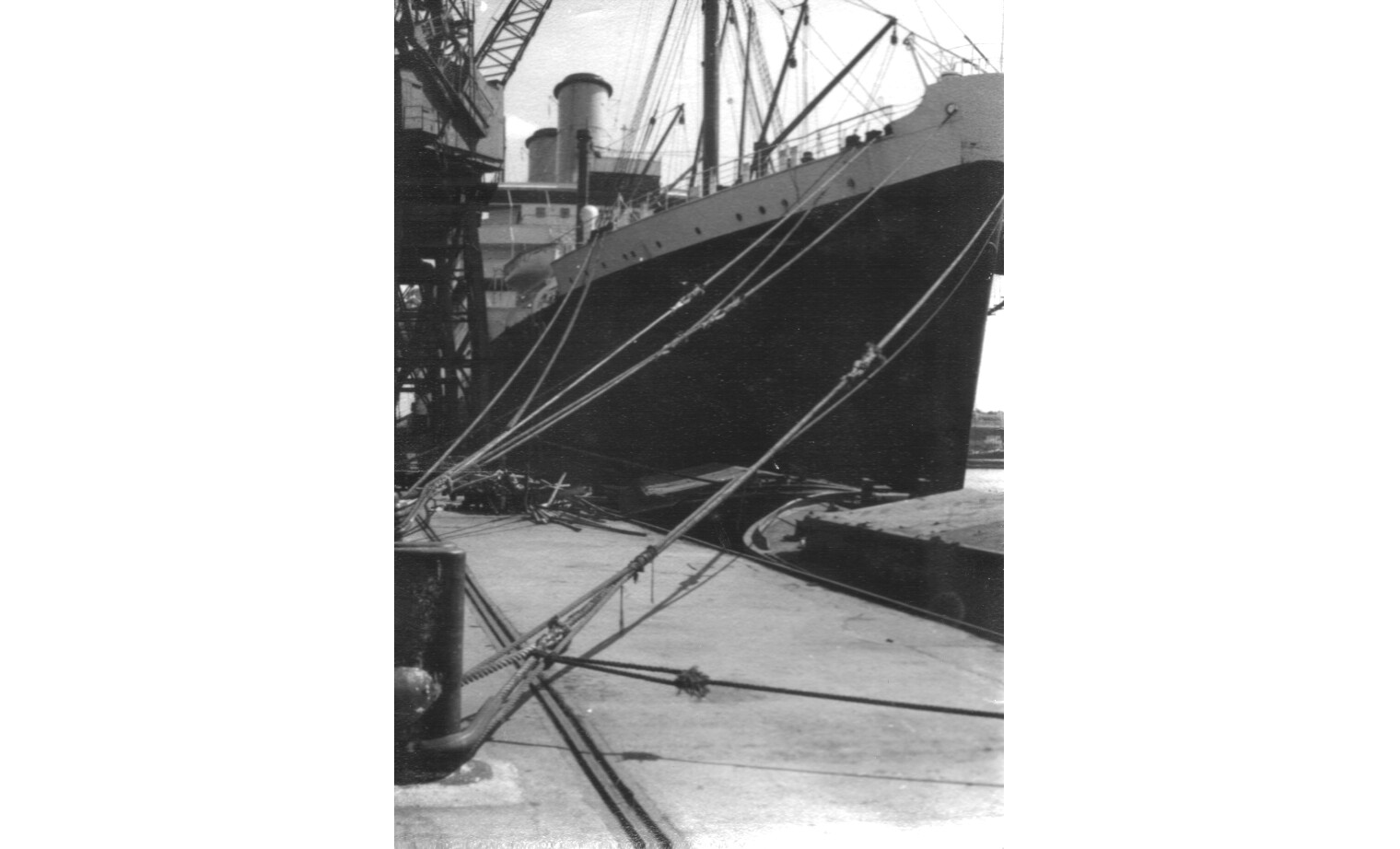
SS Orontes in Tilbury Docks circa 1950 shortly before sailing for Sydney carrying (mainly) migrants on the assisted passage scheme.
There were other brave, new things my father tried that I remember all through my life. He was a modest trendsetter in many things. Old age never calmed this streak in him. He was cautious but wasn’t afraid of failure.
Oh, and I could’ve been an Aussie!
5. The Bucket of Favours Dad always said that in the middle of the room of life was the bucket of favours. He said you should put a favour into that bucket whenever and however you could, for anyone, regardless. If everyone does this, his theory went, then whenever you need a favour, you’re entitled to take one out including from strangers.
This is one of my favourites of his sayings (which, incidentally, he followed religiously). It’s always more rewarding to give than take, I find, and I struggle to accept favours from others; I’m programmed to feel guilty. But if we each treat other well, and we each do what we can to help whenever possible, then the bucket will always be full for each of us when one day we might need it.
I remember once being cross with him about this, when I was young, asking about those who just took from the bucket and how could this be fair. He just smiled.
6. Never drink on your own Dad was a modest drinker though I suspect he might have been a bit of a lad in the Navy. But after the War he had to choose between booze and baccy, he couldn’t afford both, so he stuck with his ever-present pipe.
Never drink on your own, he said, that way it will remain a social activity and not become an addiction. Even then avoid spirits, he said, you can’t drink enough beer to kill you before the body throws it up. In my Royal Air Force days, in the Mess everyone drank enough beer to float an aircraft carrier and we threw up on many occasions. But I never took my drinking home, and we never had much booze in the house. The “never drink on your own” lesson has stood me in good stead.
7. Never complain about paying tax If you’re paying tax, he’d say, you must be earning money. He’d also say not to complain about having too much work, for the same reason. My parents and grandparents were generations who knew real hardship, hunger and unemployment.
8. Always start your own gang He was quite a solitary man, he made only few real friends as I recall but then they were for life. Don’t join others’ gangs, he always used to say, you’ll always then be wedded to their rules not your own. Instead, he said, either keep to yourself or start your own gang and run it how you want.
So, then I joined the Armed Services, one of the biggest gangs around, what was that all about? They even have their own uniforms and demand almost blind obedience to their long-established codes of practice. It wasn’t a mistake and I owe so much to the RAF but to be fair I never really settled. From my early days I was always shunted towards digital appointments, working on my own. I found my own way to be in the gang.
I recall seeking Dad’s advice in the mid-90s when I was contemplating setting up my own business after a lifetime in the corporate world. “You already know what I think, son”, he said, “start your own gang. It’s always better to be at the top of a small pile of shit than halfway up a big one.” I have since run my own businesses for nearly thirty years. There as many pros as cons to being self-employed, and there have been many dark days during that time when there was no-one to turn to but myself. But on balance I know in my heart he was right. It took me to my mid-forties finally to find someone I could happily work for – and it was me. Nothing quite beats being your own boss.
At university in Leicester in the early ‘70s, in the third year, Dexter and I wanted to live in student digs with independence away from Halls of Residence. But every time we chased adverts for rooms we discovered they’d all been filled. So instead we rented the whole of a huge old house with six rooms and promptly advertised the spares; we’d formed our own gang, set our own rules and had a ball.
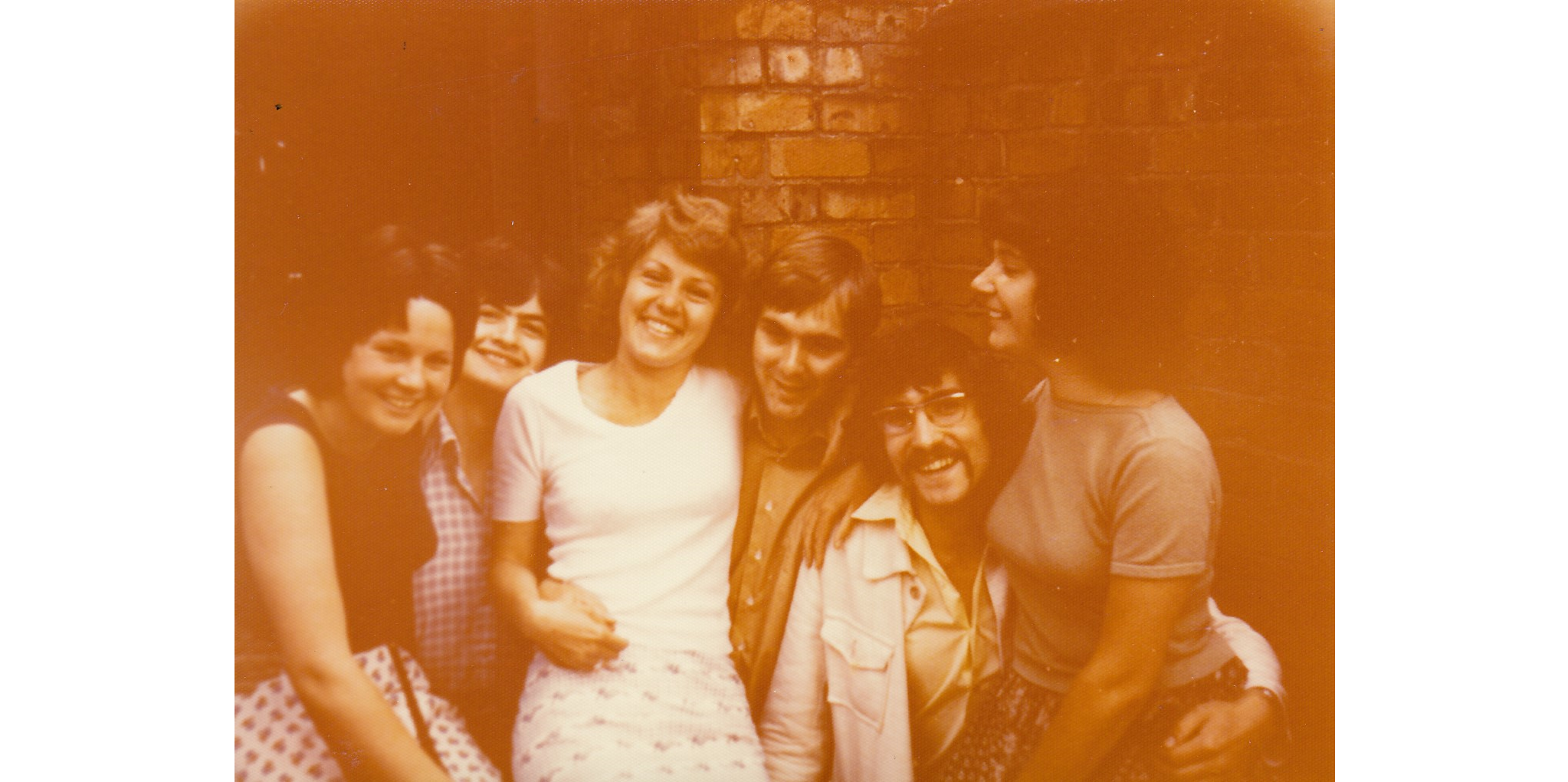
The 1974 Laurel Road gang
9. You can never have too many Plan Bs Wonderfully simple and beautifully self-explanatory. I’ll say no more
10. Some people are so stupid they can’t even do wrong right He was a schoolmaster all his working life and a really good one at that, by all accounts. He had huge respect for the young and their potential, and endless patience in teaching them. But he would occasionally sigh over some particular incident and say, “You know, some kids are so stupid they can’t even do wrong right”.
We all know what he meant. We all know people in our lives who are so stupid they can’t even do wrong right. Thank goodness that a fair proportion of crims are so stupid they can’t even do wrong right.
11. Never spend money you don’t have My father was of a generation where easy credit was ironically something to which only the wealthy had access. The best the rest could manage included self-governing mechanisms such as the tally man or hire purchase. Mortgages were difficult to obtain for scarce housing, there were no credit or debit cards, no online banking or shopping, nor such things as online gambling or lease cars or cheap holidays abroad, to facilitate rash spending and stoke up debt. Furniture and clothes were handed down. Cash was divided up and put into separate tins for housekeeping, rent, holidays and so on, I remember this clearly. If you wanted something, he’d say, you saved up until you could buy it, no exceptions. (It was only later in life he even agreed to a mortgage to buy their first house.)
Dad had a mortal fear of debt that he instilled in his children. This saved my skin on several occasions. During the con that nearly did for me the villain had scrounged every penny I had to the tune of tens of thousands of pounds. I had nothing left to give. At that stage he urged me to borrow from the bank and from friends to further fund our great plans, and I was so in his thrall that I seriously considered such a course. But then I heard my father’s voice in my ear – “never spend money you don’t have…” – and I drew back. In the end I lost all my savings but no more, and not the family home.
He also hated waste – to this day I feel guilty about not eating everything on my plate. Even now, I’ll always eat my meat even if some of the vegetables prove too much.
12. You can tell a gentleman by the way he treats his dog and the way he wears his shoes I still automatically judge people against these two random and unscientific criteria that my father swore by.
With the first, I’m unmoveable. Anyone who treats their dog badly – and I mean cruelly, not just differently to the way I treat mine – is dead to me. One of my dearest friends, a farmer, has a pair of working dogs who live outside in kennels all year; they are beautiful animals beautifully cared for, they adore him and he adores them, that’s not what I mean.
A lifetime ago I had the opportunity to invest into a young start-up company that not long afterwards was worth millions; but early on in negotiations I saw its founder kick his Labrador dog, so I walked away. I could’ve been rich beyond my wildest dreams but as it turned out he wasn’t a nice man in many other ways too, and it would never have worked. In the end the company went bust and everyone lost their dosh (except him, of course, he was long gone with his share). Thanks, dad.
There’s a chap who struts (it’s the only word to describe his gait) past my window most days, he has a new puppy, he keeps it on the shortest of leads and constantly jerks its head back presumably to teach it to walk to heel. The dog just looks confused and miserable; I don’t know this fella nor do I want to.
With shoes, it’s a little more complicated and a little more sexist. It doesn’t work with women, but with men I always look at their shoes. This isn’t to judge their style or quality (though good Oxfords are a good start) or how tired or worn they might be, but how they are cared for. Are they dirty? Are they polished? Do they match the outfit (trainers are OK but not with a suit)? Don’t start me on socks (both choice and lack of)! A careless person will be careless with their shoes, dad said. I do try to be more understanding here, but badly kept shoes will always set me on edge.
(These rules don’t always work. They’re not infallible. My con man was nice to my dog and was very stylish with his beautiful Italian shoes. Shame, if he’d kicked my dog with scuffed slip-ons he would’ve saved me a fortune.)
13. Choose a bad season over a bad neighbour every time Apparently this was a saying he’d picked up from a farmer. It makes perfect sense and I’ve always taking huge strides over the years not to fall out with neighbours. But this also taught me always to consider the longer view as well as the immediate opportunity, and to include the potential downsides now and the future of any decisions. Once you have a bad neighbour, there’s not much you can do to fix things and you’re stuck with them.
14. Never complain about problems of success Again, a deceptively simple motto but hugely sobering. Problems that arise because of success should be embraced and they will be resolved. Problems caused by failure are the ones to worry about and focus on, and they may not always be cracked.
15. All a chap needs to know I’ve saved till last the simplest, most profound and absolutely the most useful and rewarding single thing my father ever told me. Forgive me if any offence is caused, none is intended, as I share it with you. I hope it is welcomed by all, regardless of age, gender or sexuality, it comes from a previous age.
It was my only sex education. It was the only time we ever spoke about girls. I was sixteen and incredibly shy. I had a girlfriend (Linda Buchanan, oh where is she now?) but it was all very gentle and pure; it would be several more years before I eventually crossed the Rubicon of innocence.
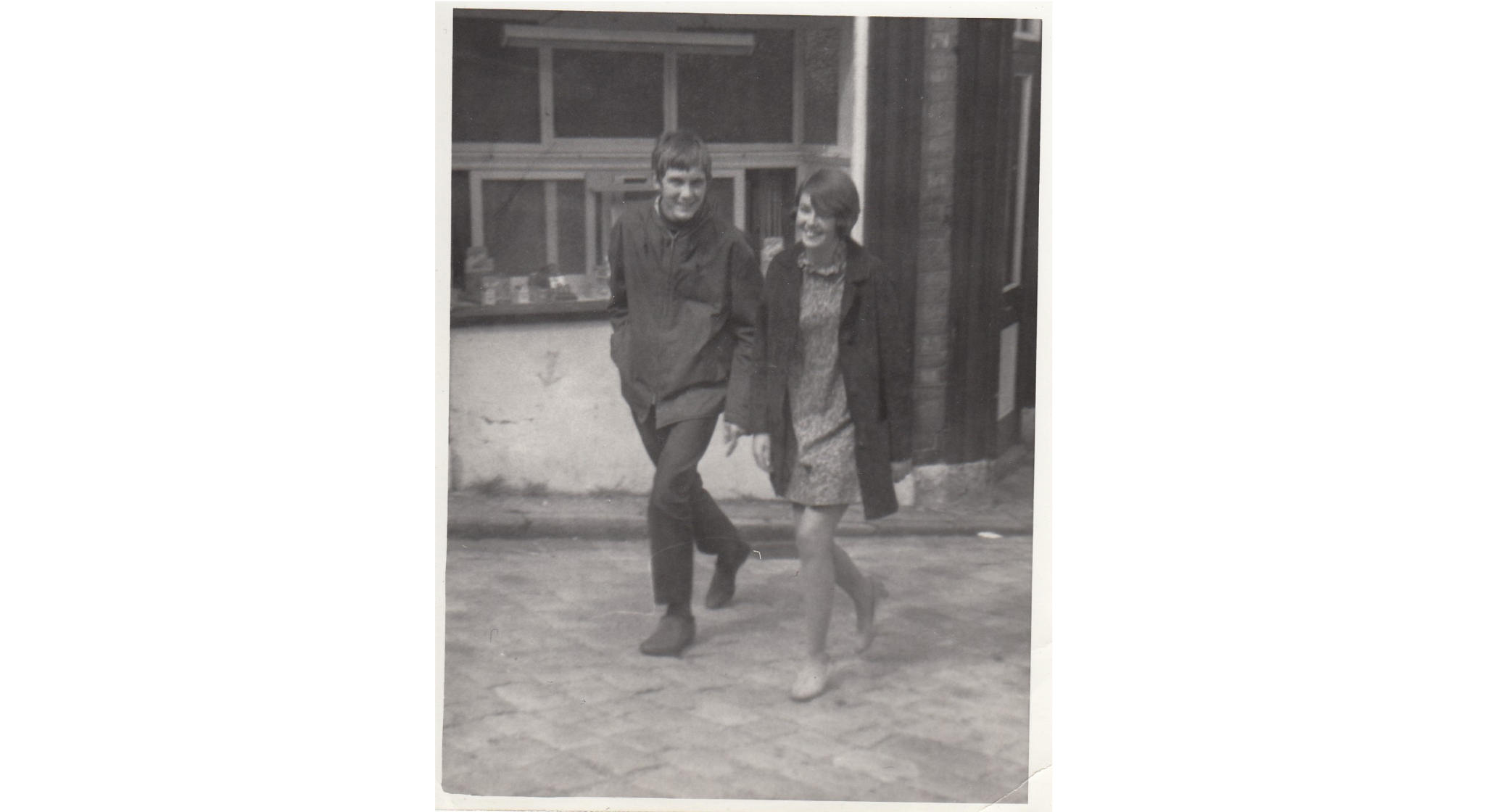
Linda Buchanan – my first and innocent love
“It seems to me, son”, he said to me, out of the blue as I was preparing to go on my second-ever date, “that if you make the lady happy first, you’ll always be asked back for more.” Perfect, in every way. Indeed, update it with “your partner” and it becomes universal to everyone about everything in their relationships.
I do my best to follow his rule all the time in my own marriage. It works. I commend it to you. Thanks, Dad, rest in peace, mission accomplished.
Have you any stories your mother or father told you that you would like to share with the SASIG community? Please share them with us here

Read more of Martin's Log
Thank you for reading my blogs. I’m getting quite old now, and hopefully I’m a little wiser than I once was. I have enjoyed a fascinating career full of fascinating people, and made many great friendships. I’ve made huge errors in my lifetime, and enjoyed great success too – it’s been the ultimate game of snakes and ladders - up and down, round and round. It is my privilege to share some of my stories with you, and describe some of the lessons I’ve learned in the hope that it may both save you from falling into the same holes, and help you in your careers and lives. Good luck and good fortune.
More blogs

